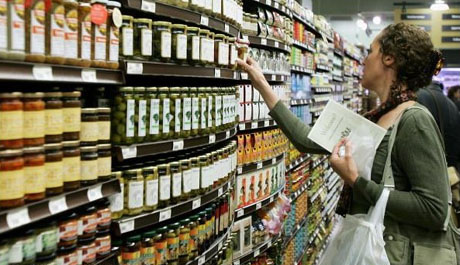WHY DO FOODS NEED KOSHER?

The food sector worldwide has been undergoing a revolutionary upheaval in its global environment and market conditions.
Four forces are driving the growth:
- Increased religiosity among Jews
- Concern about food safety by food consumers
- Increased interest by Muslim, Seventh Day Adventists, Jehovah Witnesses, vegetarian and people who are lactose intolerant
- Increasing availability of kosher products.
Globalization of the Food Industry
The globalization of the food industry, traditionally restrained by customs barriers, technological limitations and transportation costs, is now currently in full swing. The agriculture and food industries have now joined the list of "global" sectors, supplying a worldwide marketplace through a mutually supportive network of institutions that transcends national boundaries.
- The agro-food sector has been undergoing a revolutionary upheaval in its global environment and market conditions.
- Shifts in consumer demand and technology, changes in national policies, and globalization.
- The changes in food availability, induced by the changes in modern society, initially relied on constant efforts to increase productivity.
- Unrestrained pursuit of continuous increases in productivity led to excesses which resulted in the safety crises of the 1990s.
Traceability
An industrial kosher certification provides an economic advantage , a serious method of traceability, a response to problems of globalization, and at the same time a guarantee of food safety.
- The various food crises of the 1990s (dioxane, listeriosis, and Bovine Spongiform Encephalopathy ("mad cow" disease or BSE), Asian Bird Flu (H5NI)
- There is thus a greater concern for information on the origin and the composition of food products.
- The kosher certification process makes food traceable.
- Kosher certification differentiates a product for consumers who want reliable information about their food.
- The traceability afforded by the kosher certification allows the companies in the food sector, including small and medium-sized enterprises, to market niche products in bulk.
Erosion of consumers' confidence in their food
Obviously, kosher food is not just for people who keep kosher. The products are also of interest to Muslims, Seventh Day Adventists, vegetarians, and people with food allergies. The kosher labelling system provides a clear listing of the contents of a product and identifies whether it contains dairy or meat products, which is a "value add" for vegetarian and food-allergic consumers. There is also a strong demand for kosher food because many people believe that the products are produced in cleaner environments and are "safer" than foods produced in non-kosher plants. Millions of people throughout the world limit their food consumption, and seek out the kosher symbol to insure that their preferences are being addressed. According to market studies, the appeal of kosher foods transcends the interest of any one specific ethnic group.
- New risks, such as increasing microbial drug resistance and viral diseases, have arisen.
- At times, this delocalization is carried out in countries where veterinary monitoring and general food safety institutes are less sophisticated than in developed countries.
- An industrial kosher certification provides an economic advantage , a serious method of traceability, a response to problems of globalization, and at the same time a guarantee of food safety.
- more than 80% of the products offered by the industry contains pre-processed ingredients.
|